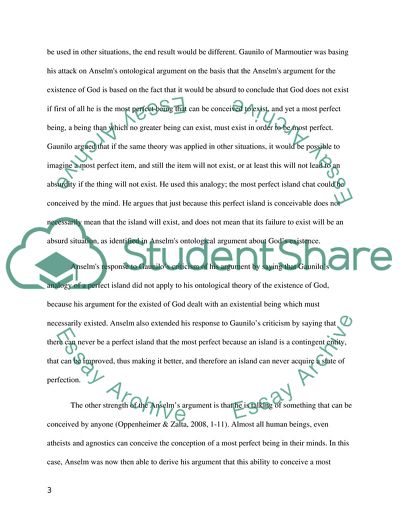Cite this document
(Anselm's Ontological Argument for the Existence of God Essay Example | Topics and Well Written Essays - 2500 words, n.d.)
Anselm's Ontological Argument for the Existence of God Essay Example | Topics and Well Written Essays - 2500 words. https://studentshare.org/religion-and-theology/1854456-critically-analyse-anselms-ontological-argument-for-the-existence-of-god-identifying-its-strengths-and-weaknesses
Anselm's Ontological Argument for the Existence of God Essay Example | Topics and Well Written Essays - 2500 words. https://studentshare.org/religion-and-theology/1854456-critically-analyse-anselms-ontological-argument-for-the-existence-of-god-identifying-its-strengths-and-weaknesses
(Anselm'S Ontological Argument for the Existence of God Essay Example | Topics and Well Written Essays - 2500 Words)
Anselm'S Ontological Argument for the Existence of God Essay Example | Topics and Well Written Essays - 2500 Words. https://studentshare.org/religion-and-theology/1854456-critically-analyse-anselms-ontological-argument-for-the-existence-of-god-identifying-its-strengths-and-weaknesses.
Anselm'S Ontological Argument for the Existence of God Essay Example | Topics and Well Written Essays - 2500 Words. https://studentshare.org/religion-and-theology/1854456-critically-analyse-anselms-ontological-argument-for-the-existence-of-god-identifying-its-strengths-and-weaknesses.
“Anselm'S Ontological Argument for the Existence of God Essay Example | Topics and Well Written Essays - 2500 Words”. https://studentshare.org/religion-and-theology/1854456-critically-analyse-anselms-ontological-argument-for-the-existence-of-god-identifying-its-strengths-and-weaknesses.


